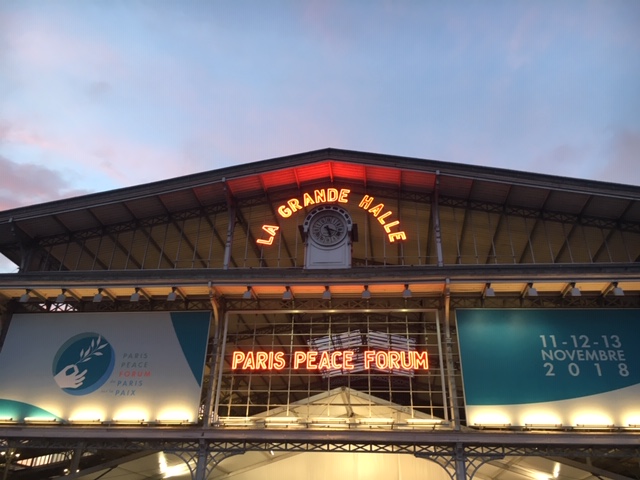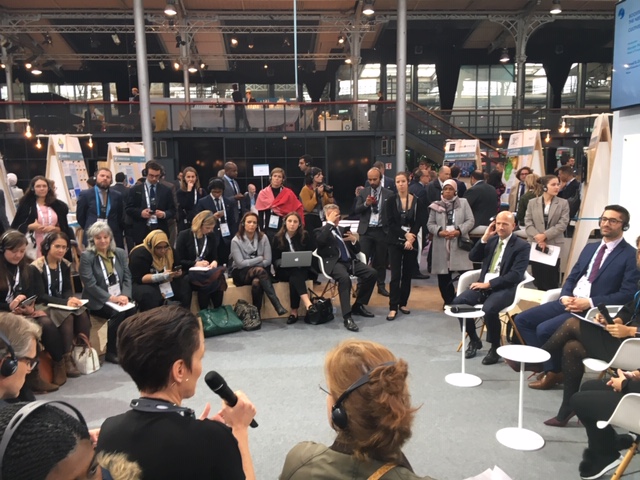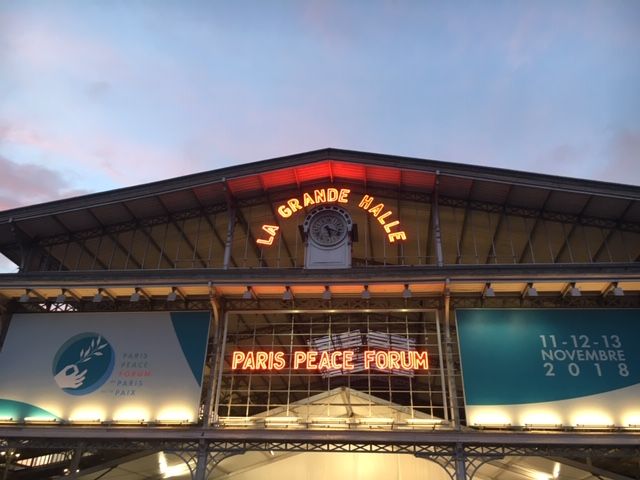
The Paris Peace Forum was an odd beast – a little chaotic, last minute, but also engaging and more fun than the usual global governance gatherings.
Why was TAI there? Well, despite the name, the gathering was essentially focused on seeking global governance solutions, not least through the showcasing of 80 projects in various stages of gestation. As a donor group keen to have its finger on the pulse of emerging challenges and ideas, it was helpful to track the different conversations. Our take-aways….
1. Eclecticism has its virtues
Bringing together those working on inclusive economies, environment, new technologies and peace and security made for an intriguing mix. One could go from hearing about using owls (yes, owls) to promote peace to the merits of joining the Open Government Partnership to civil society adoption of 3D printed satellites to the virtues of building a moon village. At times it was hard to spot collective threads, but most seemed to find the mix energizing, and started some new conversations with potential.

2. Let’s pay attention to governance of the “in-between spaces”
We tend to think of governance frameworks and applications in the context of defined government spheres – local, national, maybe up to international bodies like the UN, and there was no shortage of projects/people discussing them in Paris (who knew there were so many processes discussing variants of UN reform?!) Yet, perhaps more interesting was to see the emergence of early thinking on clarifying rules of the game where few have existed – from outer space to the oceans to the atmosphere. Finding ways for them to learn together will be helpful.
Climate change is a clear driver here. Hence, as ice caps retreat at both poles, processes to consider governance of the Arctic or the Southern Ocean gain new relevance. Similarly, who determines what constitutes responsible geoengineering? What happens if governments, or even companies, take unilateral actions with adverse consequences for other geographies? Talk to the Carnegie Center if you want to learn more.
3. China’s presence
It was heartening to see Chinese representatives at the Forum and intriguing to see two projects featured explicitly – the Belt Road Initiative and a multilateral institution “to facilitate global talent mobility” proposed by the Center for China and Globalization. Both target issues that align very strongly to Chinese interests. Their framing as global governance efforts is very much open to interpretation, but it was a welcome chance to engage.
4. Innovations in format can pay off
After enduring many frustrating conference experiences this year, kudos to the organizers for avoiding many of the typical event format failings. The use of technology – you needed headsets to join any conversation – paid off. It allowed for the mix of pitches, discussions and inevitable panels to be held within the exhibition space. That encouraged people to visit the different stands and flow from one conversation to another much more effectively. It created an intimacy and lack of hierarchy that was helpful. Overlapping sessions, so avoiding set coffee breaks, really helped as did emphasizing small scale conversations that weren’t overly long. It is rare to be able to be part of a thirty-person workshop with Yo Yo Ma, a debate on testing the limits of international sanctions, and a pitch for employee email monitoring for financial fraud detection all within a 2-hour span. Not everything worked, for example, the option to request “Braindates” came very late in the day, and the parallel hackathon seemed very much supply driven, but the ethos of encouraging engagement paid off overall.
5. The ever-present sustainability challenge
There is no doubt that the Forum benefited from the connection to the Armistice centenary celebrations and the presence of so many world leaders for the opening sessions. Such star power will not be there each year, and yet the plan is for the Paris Peace Forum to become an annual event. The goodwill generated from this first meeting is a good basis. A year from now, we are still likely to crave a space where one need not feel apologetic for pushing a positive agenda to tackle global problems. Yet, what how to go beyond a group therapy space? Perhaps more investment in encouraging interaction between each forum and providing some locus for innovation. Would a more substantive fund for incubating ideas make a difference? Could a secretariat identify and support opportunities for learning across initiatives? Food for thought as planning for 2019 picks up in the coming months.
This blog was written by Michael Jarvis (Executive Director at TAI).
